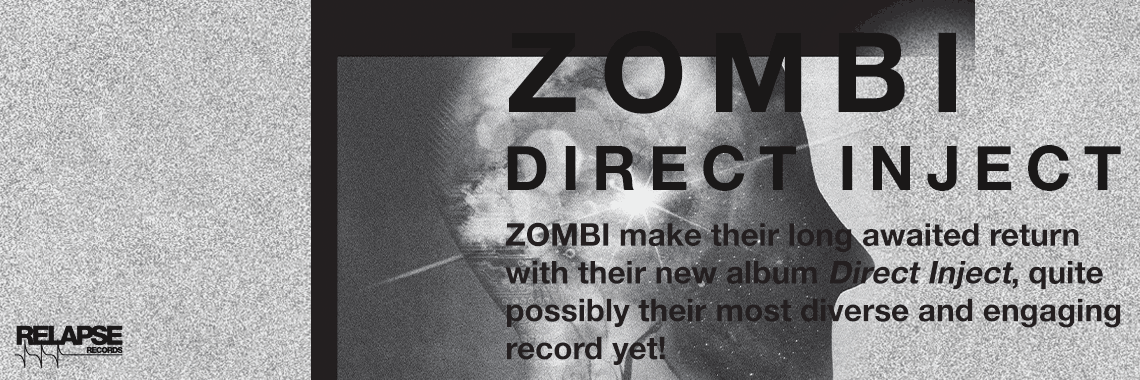Funeral doom can be a most divisive subgenre. Whole groups of well-versed metalheads will split on the merits of a type of music that eschews speed, the associated aggression, and most anything that can be considered technical musical achievement. Of course, this very division might be part of what defines it – a hallmark of the sounds that belong in our beloved extreme scene.
But funeral doom as the result of a union? This year, New York married couple Kristina and Michael Rocco formed the slothful Herodias out of the remnants of their other (perhaps less extreme) musical ventures. With Michael on light-eating guitars, drums, and various keyed instruments, and Kristina on piano and soaring soprano vocals, the duo mixes abyss and beauty in perfect proportions. Imagine stirring together Virgin Black’s requiem intentions with Funeral’s female vocals over the spacious creations of Half Makeshift, and you’re approaching the Herodias sound.
With one new record, Dance of the Seven Veils, available at various mainstream media outlets as well as through the band’s website (http://www.cultofherodias.com/), and another album in the oven and scheduled for release in September, Herodias are looking to make the world just a little bit doomier. Here are some of the Roccos’ insights regarding their process, motivations, and influences:
According to the Encyclopaedia Metallum, Herodias just formed this year. How did the project come about, and how do you have such fully formed songs so quickly?
Kristina Rocco: Michael and I were wrapping up a regional tour as an acoustic duet and we became discouraged by the lack of energy (and interest) in the local scene. One moment, we’d play in front of five hundred kids in an auditorium. Then we’d pour our hearts out to six diners who didn’t even know we were in the room. It seemed as though musicians had to compete as cover band background music for a few bucks. We were a needle in a haystack of needles.
Michael Rocco: Exactly- although we’re proud of the music we had written and performed, we were simply unhappy with the path we had chosen. From this experience, we decided that if we were to continue this music business racket after so many years of blood, sweat, tears, sacrificing small animals, etc., we’d at least do what we enjoy. We had taken piano arrangements from a previous project that never got off the ground and were surprised at how well those pieces fit with Herodias. We wrote and rehearsed for a couple of months and recorded the album in about a week. The one benefit of me being gainfully unemployed is the time I have to obsess over this project.
Are there any specific bands/albums that influenced your approach to Dance of the Seven Veils?
MR: We listen to a lot of metal and have been inspired by musicians like Testament, Overkill, Mournful Congregation, Funeral Mourning, Nortt, Sunn 0))), Moss, and so on. Classical music has also played a big role in DOTSV- anything from Roslavets to Valentin Silvestrov.
There are moments of chilling, amusical noise on the album. How do those sounds occur to you (in the writing or recording process), and how do you choose to include them?
KR: (laughing) You’ll have to ask my lunatic husband- that’s him being himself.
MR: I think of my in-laws and images immediately begin to… honestly, with Herodias, contrast is very important to me. I wanted the music to be a sincere balance of light and dark. Kristina’s vocals are beautiful and moving, so I just had to turn everything inside out. We’re also huge horror movie fans, which helped. Sometimes, there’s a musical bridge that just needs a little more.
Who writes the vocal lyrics? And, since I can’t understand what’s said, what are they about?
KR: That would be me. I am a foreign language teacher by day, so that is why the lyrics are written in Spanish and Latin. The lyrics can be very abstract, but the content reflects emotions that we’re feeling- confusion, depression, loss of love, isolation and contempt. Most songs are directly related to the occult story of Herodias and the ways in which she manipulated the people around her. Though the lyrics paint a dark picture of her and her daughter, Salome, I must admit that there is a part of her that I deeply respect. In those times, people were outcast over every human emotion they expressed. She fought for her love despite the pressure of her environment. Most of all, she makes today’s feminists look like posers.
MR: I just howl.
Do I understand correctly that you have another record due out this fall? Over time, do you expect Herodias to continue in the funeral doom vein, or do you hope to explore other avenues as well?
MR: Our second album ‘Antevorta’ will be released on 9/1/12. We’ve been making music together for many years and are grateful for every experience- even the time one guy at a bar screamed ‘PLAY SOME BILLY JOEL, YOU BITCH!’
KR: (laughing) Yes, but we’re happy to have settled into this genre and already have plans for a third album. This is truly a labor of love.
Are there other forms of art (movies, literature, etc.) that are impacting your music?
MR: Unfortunately, we’ve been watching too many UFO/conspiracy videos on Youtube lately. I think the world around us is shaping our music more than any other medium.
KR: Yeah, life is a big motivator. Most married couples stress over bills, fight about leaving the stove on (we’re well versed at this). But, we understand that what we’re doing musically is unusual and we’re fine with that.
What non-dark music are you into right now?
KR: We have eclectic tastes in music and listen to everything from Roger Waters and Tom Waits, to Concrete Blonde and Peter Gabriel.
MR: After we finished mixing DOTSV, we lit a candle and relaxed to Johnny Mathis.






